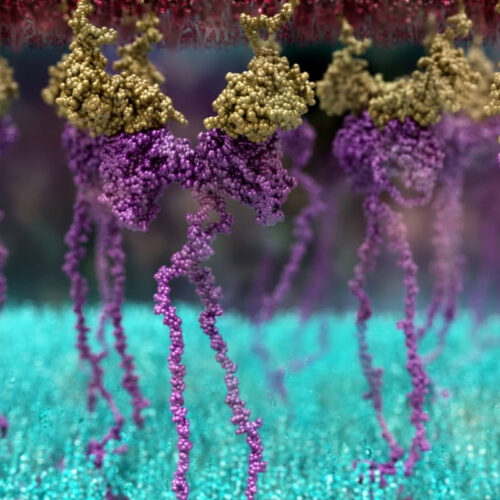By Indiana University School of Medicine Regression results for NAFLD activity score (n = 93). A Regression plots of the Bonferroni-adjusted significant correlations between NAS and pharmacogene mRNA expression. Linear trendlines were fit (blue line) with 95% confidence interval region (gray). B Volcano plot showing the slopes and p-values for the regressions between NAS and pharmacogene mRNA...
New tool to predict people’s risk of developing lung cancer within the next ten years
By Jane Icke, University of Nottingham Researchers at the University of Nottingham have helped to develop a new tool called “CanPredict,” which is able to identify the people most at risk of developing lung cancer over the next 10 years, and put them forward for screening tests earlier, saving time, money and, most importantly, lives. Featured...
Migraine as a neurological condition
By Yale University Anyone who thinks of a migraine as “just a headache” has likely never had one, as the condition can be debilitating and painful. Migraine is a neurologic disorder that not only causes headaches, but often also a constellation of symptoms that can impact daily living, explains Jason Sico, MD, MHS, a Yale...
Pancreatic lesions may occur more frequently than previously thought
By American Association for Cancer Research The Pancreas. Credit: Illustration from Anatomy & Physiology Connexions Web site http://cnx.org/content/col11496/1.6//Wikimedia Commons, CC BY Pancreatic intraepithelial neoplasia (PanIN) lesions were detected in a majority of healthy pancreases from deceased donors of diverse age and harbored features of pancreatic cancer, according to a study published in Cancer Discovery. Pancreatic cancer is a...
tRNA biomarkers for cancer diagnosis and prognosis enabled by new method
by Center for Genomic Regulation Credit: Eva Novoa/Center for Genomic Regulation (CRG) Ribonucleic acid (RNA) molecules are present in all living cells, with different types of RNA having different jobs. For example, messenger RNA is copied from DNA and carries instructions on how to make a protein. Transfer RNA (tRNA) links the mRNA sequence with...
New test could help identify type 2 diabetes risk
by University of Edinburgh Credit: Unsplash/CC0 Public Domain Analyzing changes to DNA in the blood can improve the ability to predict a person’s risk of developing type 2 diabetes within a decade. Scientists looked at the influence of these changes—known as DNA methylation—alongside other risk factors in almost 15,000 people to predict the likelihood of...
21 million Americans may take a hypothyroidism drug they don’t need
by Isabella Backman, Yale University Credit: Pixabay/CC0 Public Domain As many as 90% of those who take levothyroxine [Synthroid] may have been unnecessarily prescribed the hypothyroidism medication. Approximately 23 million Americans take levothyroxine, making it one of the most prescribed drugs in the country. To test for hypothyroidism (underactive thyroid), clinicians measure the levels of...
Researchers ID biomarkers of response to immunotherapy for kidney cancer
by Johns Hopkins University School of Medicine Pathologists look through a microscope to evaluate H&E slides for tumor infiltrating immune cells and necrosis in patients with kidney cancer who go on to receive immunotherapy. Credit: Julie Stein Deutsch via Biorender The number of immune cells in and around kidney tumors, the amount of dead cancer...
Alternative glucose breakdown ensures the survival of cancer cells
by German Cancer Research Center Credit: Pixabay/CC0 Public Domain A key enzyme in sugar metabolism is inactivated particularly easily and efficiently by oxidative stress. Scientists at the German Cancer Research Center (Deutsches Krebsforschungszentrum, DKFZ) have now shown that with this oxidation, cells switch to an alternative sugar breakdown pathway and can thus escape oxidative stress. Cancer cells...
New type of genetically-engineered T-cell may destroy solid cancer tumors
By Paul McClure April 05, 2023 Researchers have created a new type of genetically engineered chimeric antigen receptor (CAR) T-cell that shows great promise in treating solid cancer tumors Maja Divjak/Peter MacCallum Cancer Center Cancer cells are notorious for evading detection by the body’s immune system, making them difficult to treat. But a promising new...

